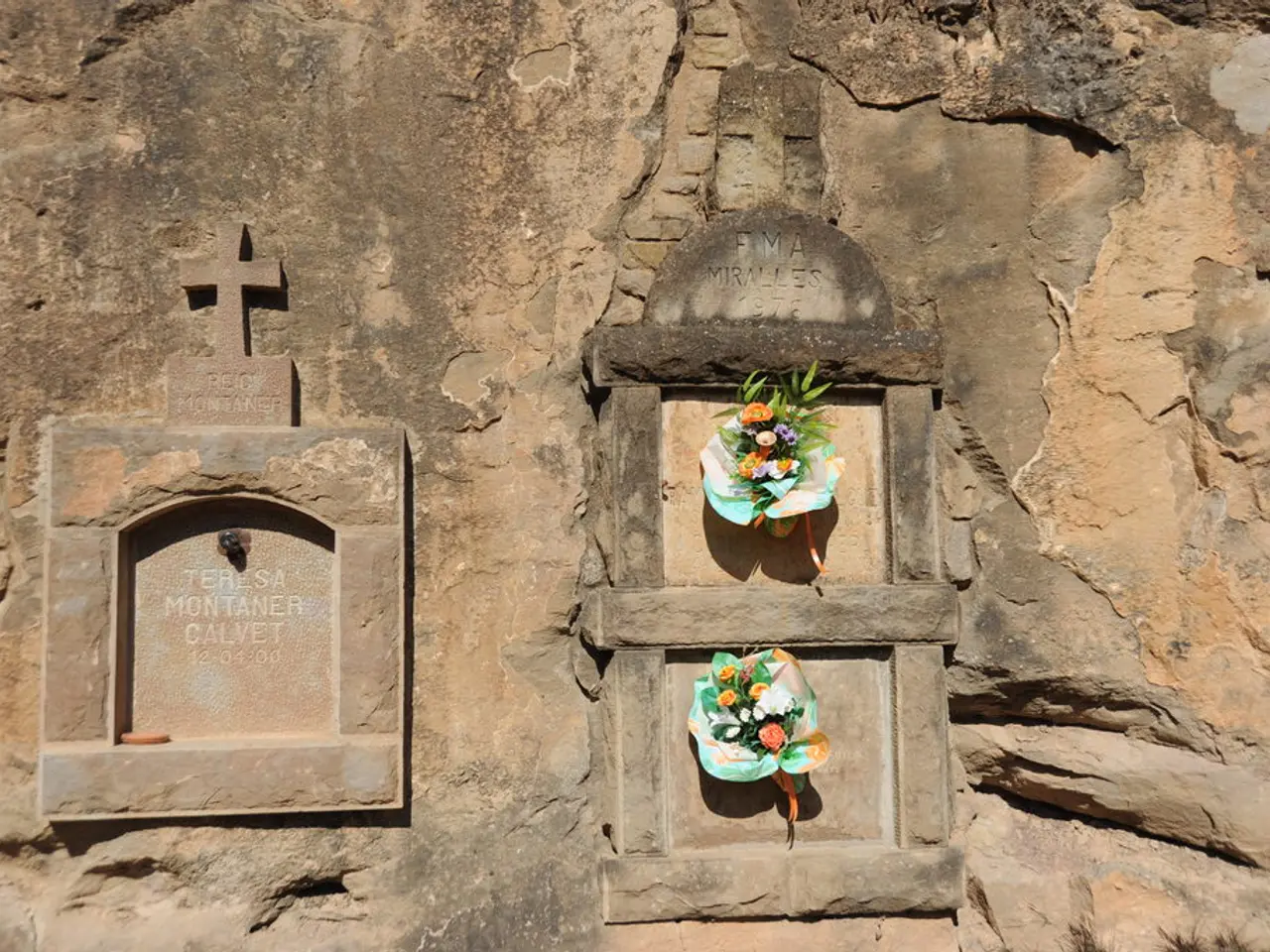July 2025 Archives...
In the tumultuous days of August 1914, as World War I ravaged Europe, a series of events unfolded in the small Belgian village of Berneau and the city of Aachen, Germany, that would leave a lasting impact.
On August 5, the 25th Infantry Regiment, part of the Aachen garrison troops, encountered resistance near the Meuse River. This resistance was allegedly led by five men: Guillaume Fafra, his son Henri Fafra, Jean Trinon, Guilleaume Ackens, and Joseph Monix. The five men were arrested by German soldiers, accused of firing shots at their comrades.
The following day, the men were taken to Berneau, near Richelle, where a war crime occurred. German soldiers killed ten civilians, including Mayor Walthère Bruyère, and destroyed 67 houses. Ackens, a Dutch citizen, was among the victims.
The five men were tried by a German military court in Aachen and executed on August 11, 1914, at the shooting range in Forst. Their bodies were buried on the spot, but after the war, their remains were excavated and later transferred. In 2020, they were given a ceremonial funeral, marked by a solemn transfer in Aachen and a procession towards the cathedral, where they were honored with a high mass.
The names of the five men and the two surviving widows are inscribed on the war memorial and the grave monument in Richelle. The solemn ceremony aimed to honor them as "martyrs" and return them to their homeland with dignity.
Aachen, a key logistics hub for Germany's attack on Belgium, was the scene of numerous atrocities during the early months of the war. Repeated war crimes against Belgian civilians were used as a reason for "deterrent" punishments, resulting in hundreds of people being killed. The German War Crimes in Belgian Berneau were often reported in Aachen's newspapers to justify violence against Belgian civilians.
On July 20, 1920, an impressive funeral procession passed through Aachen, led by Belgian soldiers and three bishops. This procession marked the return of the five men from Richelle, executed in Aachen in 1914, and served as a poignant reminder of the atrocities committed during the war.
Today, the Aachen City Archives regularly displays pieces from its collections as the "Archive Piece of the Month," offering glimpses into the city's complex history. The story of the five men from Richelle stands as a testament to the darker chapters of World War I, serving as a reminder of the human cost of conflict and the importance of upholding international law.
In the context of the complex history of World War I, politics and general news frequently intertwined with war-and-conflicts, as exemplified by the story of the five men from Richelle who were executed in Aachen and later honored with a ceremonial funeral. The events, initially reported in Aachen's newspapers as justification for violence against Belgian civilians, serve as a poignant reminder of the human cost of conflict and the importance of upholding international law.








